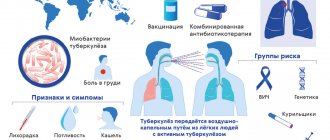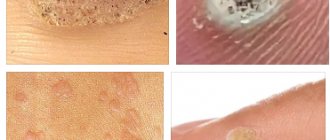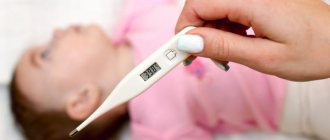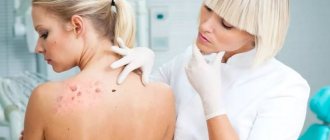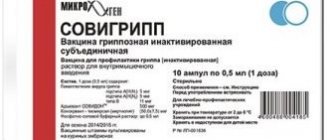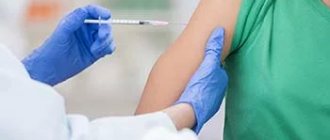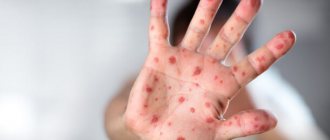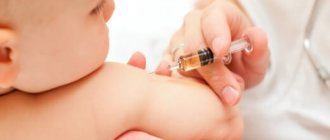What HPV vaccines are there?
Currently, two vaccines against HPV have been synthesized: Cervarix, a bivalent HPV-16/18 vaccine [GlaxoSmithKline], and Gardasil, a quadrivalent HPV-16/18/6/11 vaccine [MSD]. In large multicenter studies involving tens of thousands of women aged 16 to 26 years, both vaccines were found to be nearly 100% effective in preventing disease caused by human papillomavirus types 16 and 18 (Cervarix) and types 6,11,16 and 18 (“Gardasil”). There is evidence of a possible additional protective role of these vaccines against other HPV types not included in the vaccines (so-called cross-immunity). Studies have shown immunity against primary infection with HPV types 45, 31, 33 and 52.
Will vaccination be effective if I am over 27 years old?
Until recently, vaccination was not prescribed after 27 years of age, but not because it could negatively affect the body. The thing is that its effectiveness at this age has not been proven. That is, it was believed that by the age of 28 a person had already become familiar with the virus in one way or another, and there was no point in vaccination.
However, in 2021, the Food and Drug Administration (USA) approved vaccination against the papilloma virus for men and women over 27 years of age. The experience of Australia is also impressive, where they vaccinate all minors under 19 for free and recommend that all adults do it themselves at their own expense. Scientists believe that thanks to such universal vaccination, the number of cervical cancers will drop to 400 cases per year within 10 years, and after 50 years, the problem will be almost completely overcome.
So if you are over 27 years old and sexually active, the HPV vaccine is still an effective cancer prevention method.
Who is recommended for vaccination against HPV infection?
In recent years, HPV vaccines have been included in the national vaccination calendars of many countries around the world. HPV vaccination is recommended for all adolescent girls aged 12-14 years. It is early vaccination (before the onset of sexual activity) that is most effective. However, even at a later age, the vaccine has undoubted benefits. Currently, studies of the Gardasil vaccine have been completed in women under the age of 45 and in young men. Based on the results of these studies, HPV vaccines are recommended for use both in women without HPV infection and in infected patients.
Will the vaccine help if the virus is already in the body?
According to the latest research from the National Cancer Institute in the United States, if a person is already infected with HPV, the vaccine will protect him from all other types of the virus. And if self-healing occurs, it will prevent re-infection. That is, the vaccine, unfortunately, will not be able to cure you of an existing infection, but will reduce the risk of cancer.
This is why experts do not even recommend getting tested for HPV before vaccination, since the test result does not affect the advisability of vaccination.
What to do if the next vaccination date is missed?
The minimum acceptable interval between the first and second doses of the vaccine is 4 weeks, the minimum interval between the second and third doses is 12 weeks. Therefore, an accelerated vaccination schedule is sometimes allowed. If the vaccine schedule is interrupted, there is no need to start the entire series over. If vaccination is interrupted after the first dose, the second dose should be given as soon as possible and separated from the third dose by at least 12 weeks. If only the third dose is delayed, it should be given as quickly as possible. If the interval between vaccinations is violated, the vaccination course is considered completed if three doses are administered within 1 year.
Expert opinion
We decided to introduce you to the reviews of the center’s doctors about HPV vaccination.
Kruglova Irina Ivanovna: “I recommend that my patients get vaccinated. After all, the risks are minimal, the drugs are absolutely safe. But what is the result - you protect yourself from cancer! Cervical cancer, which accounts for 7.5% of all deaths among women from cancer. And it’s great that the effect exists regardless of age and even the presence of the virus in the blood. But we must remember that vaccination does not cancel regular screening for cervical cancer: once a year it is still necessary to undergo smear cytology or PCR.”
Akhmedova Larisa Maratovna: “When my patients ask me whether to get vaccinated against HPV, I always ask - what do you have to lose? Yes, the vaccine is not free. But its cost is incomparable to what women have to go through when faced with oncology and even genital warts. If you are already 30 years old, technically you could not be vaccinated at 10 years old, as recommended by WHO. But the vaccine is also effective after the onset of sexual activity, when you could theoretically encounter papillomavirus. There are 190 species of them, but only 2 are deadly, and we can completely protect ourselves from them today.”
Where does cancer come from?
There are several theories about the causes of cancer: exposure to carcinogenic substances, the influence of certain viruses, and hereditary predisposition.
The outstanding Russian scientist L.A. Zilber, who already in 1935 formulated the principles of virology and immunology of cancer, is deservedly considered one of the discoverers of the role of viruses in the development of cancer. In subsequent years, foreign and domestic scientists confirmed the important role of viruses in the process of carcinogenesis.
A more detailed study of the role of viruses in the development of cancer at the end of the 20th century. marked the beginning of the development of vaccines against cancer. The invention and mass use of a vaccine for the prevention of hepatitis B is generally recognized as the first success in this area. In addition to preventing the infectious disease itself, vaccination prevents cirrhosis and primary liver cancer. Over 30 years of vaccination, including the mass use of this vaccine since 1997, hundreds of thousands of human lives have been saved and extended in Russia.
The second significant success of scientists was the discovery of the connection between the human papillomavirus (HPV) and the development of cervical cancer (CC). For the discovery of this connection, Harold zur Hausen received the Nobel Prize in 2008. Later, the role of HPV in the development of cancer of a number of other organs was revealed.
Have you decided to get the vaccine?
Sequencing:
- Call +79218952548 from 09:00 to 16:00 and make an appointment at a time convenient for you
- Go to the registration desk and fill out the necessary documents
- Before vaccination, you will visit a doctor to evaluate contraindications (free of charge)
- Go to the treatment room
- You must remain in the clinic under the supervision of medical personnel for 30 minutes after receiving the vaccine.
- In general, the procedure will take 1 hour of your time.
- The total cost including the PROMOTION will be 8,910 rubles.
Possible complications
In relation to post-vaccination consequences, both drugs are similar. After administration of the vaccine, side effects may occur in any case, including:
- pain, itching, redness, swelling, formation of infiltration and hematomas at the injection site;
- throbbing headaches;
- pain in the abdominal area;
- rise in body temperature to 38 degrees;
- allergic reactions (from urticaria to anaphylactic shock) to some components of the vaccine;
- general signs of illness, which include dizziness, aching joints, loss of appetite, weakness, chills.
Most of the above symptoms do not require treatment and disappear on their own a couple of days after vaccination.
Dangerous complications leading to death are very rare. Statistics show that out of 10 thousand immunized women, one patient dies due to the fault of Cervarix and Gardasil, in whom no concomitant diseases were detected in the acute stage before vaccination.
You can find information that the HPV vaccine causes infertility, but such facts have not been registered.
How effective is the Gardasil vaccine?
It is 100% effective in preventing diseases caused by the four types of HPV included in it, if the woman has not yet been infected with them. For women who have already been infected, the effectiveness is somewhat less.
It is important that pre-existing HPV infections cannot be cured by vaccination. More importantly, approximately 30% of cervical cancers are caused by rarer types of HPV and therefore cannot be prevented by vaccination. Therefore, vaccinated girls and women should, nevertheless, regularly conduct a PAP test.
Hygiene, hardening and vitamins
— What measures are necessary, in addition to vaccination?
— We can only vaccinate girls from the age of 9, and viral diseases occur even before this age. And in young children, condylomatosis and papillomatosis occur not only in the genital organs, but also in other localizations. The most dangerous thing is laryngeal papillomatosis in newborns and infants. They become infected when passing through the birth canal of an infected mother. This is why it is important to vaccinate girls, they are future mothers. And if they themselves do not get sick, they will not infect their children. Also, to increase a child’s immunity, general strengthening procedures are important first of all: maintaining a sleep and rest schedule, hardening, walks in the fresh air, good nutrition, treatment of chronic diseases. Of course, maintaining hygiene. If someone in the family suffers from some kind of infection, then the child should not sleep with the parents in the same bed, because the parents may have a sexually transmitted disease, and for the child - a household contact disease. The child must have his own hygiene items, his own dishes, his own bed, his own towels. The child should be taught to fold their underwear correctly and store it on a separate shelf where there is no outerwear. If a child attends a swimming pool or other sports activities, he must be taught not only safety rules, but also hygiene rules.
— What work is being done to educate the public about the importance of HPV vaccination?
— We are conducting an information and communication campaign together with the Moscow Department of Health. We inform mothers, girls, teenagers, teachers that there is a virus, there are diseases caused by this virus, and why these diseases are dangerous. We tell you that this virus can cause precancerous and cancerous diseases. As the chief pediatric gynecologist of the city of Moscow, I regularly hold meetings with district specialists and say how important it is to convey this information to parents. Often mothers do not know about the possibility of vaccination, do not know who to ask, or do not even know about the existence of such a doctor as a pediatric gynecologist. Today in Moscow, every clinic has a gynecologist for children and youth; there is no shortage of these specialists. Therefore, if you want to take your daughter to a pediatric gynecologist, then just ask the pediatrician about it. HPV vaccination is now carried out in schools, and girls are offered the vaccine. Sometimes mothers begin to consult with each other in their chats, look for information on their own on the Internet, but, of course, it would be good if they asked a specialist about this. And it is very important that we, obstetricians-gynecologists and pediatricians, give parents this information. I blog on Instagram - @doctor_karachentsova - where I try to tell mothers in an accessible way about the most pressing issues related to women's health.
Is there a treatment for HPV? More details
— What else is important to know about maintaining a girl’s health?
— Taking care of women's health should begin from birth. For some reason, everyone thinks that this should be done when she becomes a teenager, and some believe that before marriage you should completely forget about the gynecologist. This is wrong. After all, children have all the same diseases in the field of gynecology as adults: inflammatory diseases, uterine bleeding, menstrual irregularities, sexual development, malformations of the genital organs and many others. It happens that a girl’s belly grows, the mother thinks that the child has simply gained weight, but an ovarian tumor develops inside. Tumors often hide under the guise of obesity. My colleagues and I specially created a reminder for mothers. There are only 20 points in it. It popularly explains what complaint you need to pay attention to in order to go to a pediatric gynecologist in order to see a doctor on time and prevent advanced cases.
How to reduce the risk of HPV infection?
The risk of HPV infection is reduced only by sexual abstinence or mutually monogamous relationships with an uninfected sexual partner. However, if the partner has been sexually active in the past, monogamy also cannot protect against infection. A condom does not protect against HPV infection, since infection occurs through contact with the skin and genitals of a partner. However, it has been observed that using a condom reduces the risk of cervical cancer caused by HPV.
But only vaccination completely protects against the risk of HPV and cervical cancer.
How is immunization done?
Vaccination with Gardasil and Cervarix involves a three-act intramuscular injection of the vaccine. Immunization takes six months. The first injection is given at a time convenient for the patient, the second - after a month, the third - after 6 months.
Before vaccination, pregnancy is excluded; a test is done for this. If a person has a fever on the day of vaccination, immunization is postponed until complete recovery.
The vaccine should only be received after consultation with a doctor. It is important to mention in the conversation about bleeding gums and the tendency to form hematomas, if any. You should also tell us if you have recently received vaccinations or are taking any medications.
Vaccinal prevention of papillomavirus in NEARMEDIC
In the multidisciplinary network of NEARMEDIC clinics, vaccination against the human papillomavirus is carried out only with certified drugs. Immunoglobulins to the HPV protein, produced during the vaccination process, remain in the blood and epithelium of the genital organs for a long time. While the vaccine is effective, the following are prevented:
- infection with oncogenic and other types of papillomavirus;
- the appearance of genital warts;
- development of cancer of the internal and external genital organs in women;
- neoplasia of the penis in men;
- anal epithelial neoplasia in men.
At the NEARMEDIC Vaccine Prevention Center, women and men, as well as children - girls and boys from 12 years of age - are vaccinated against HPV.
Before vaccination, the patient is consulted by network specialists in the field of gynecology, andrology or oncology. Consultations are conducted by doctors and candidates of medical sciences, doctors of the first and highest category, who have many years of experience in the successful treatment and prevention of human papillomavirus infection and its complications.
When prescribing vaccinations, specialists will take into account all existing contraindications, based on the patient’s health status, and, if necessary, will refer him for allergy tests.
Depending on the results of the survey and examination, diagnostic and, if necessary, therapeutic procedures are prescribed.
Then the patient visits the manipulation room of the Vaccine Prevention Center of the multidisciplinary network of NEARMEDIC clinics, which meets all sterility requirements. Only disposable consumables are used for vaccination. The vaccine is contained and stored in full compliance with the temperature regulations and the period of validity of the drug. The manipulation room contains first aid equipment for an allergic reaction to vaccination, despite undergoing allergy tests.
Such an integrated approach to the prevention of human papillomavirus infection, when the patient is constantly under the close attention of attending physicians and specialists from the Vaccine Prevention Center, reduces the risk of complications and increases the effectiveness of vaccination. If an HPV infection is detected, the patient receives qualified treatment, for which he does not need to go to another medical institution - he will receive all types of consulting, preventive and therapeutic services in our network.
Should boys be vaccinated?
The vaccine is also effective for boys, but experts debate whether widespread vaccination is justified, weighing the cost of the vaccine against the incidence of penile and anal cancer. In 2012-2014 studies in the United States, HPV vaccination was also offered to boys. We recommend, if possible, that boys be vaccinated against HPV, as the prevalence of anal cancer is growing, and genital warts are also not harmless and can lead to delayed and painful urination.
